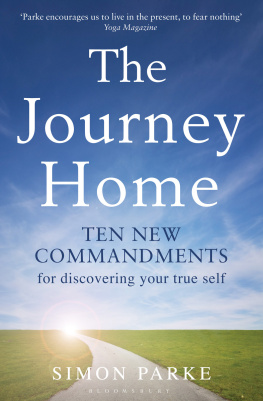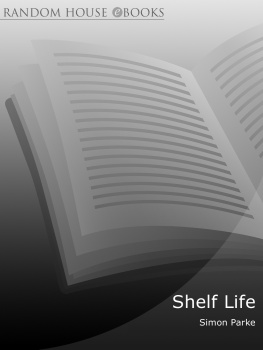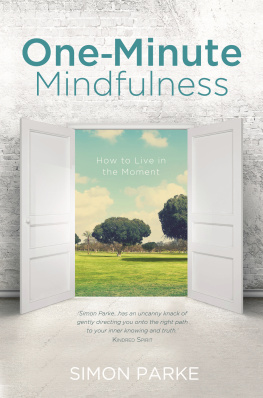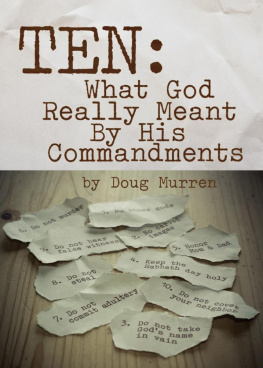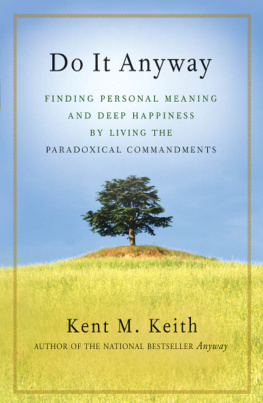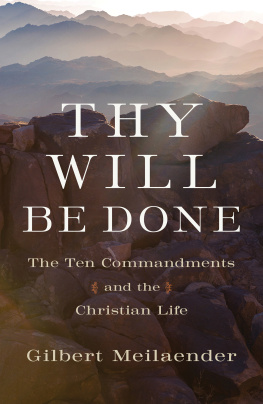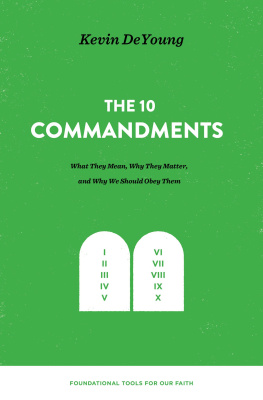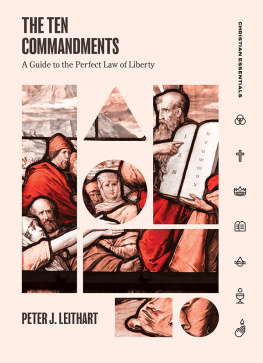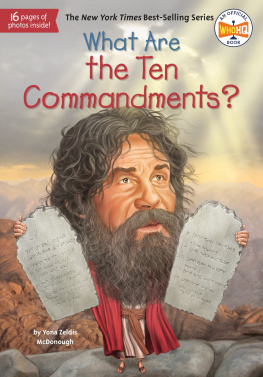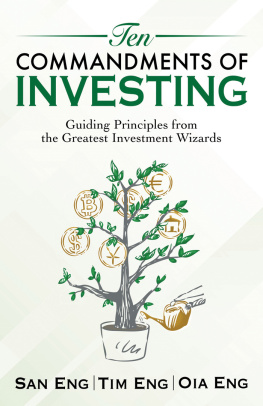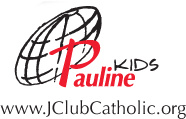THE JOURNEY HOME
TEN NEW COMMANDMENTS
FOR DISCOVERING YOUR TRUE SELF
SIMON PARKE

Every night and every day, black Plutos door stands open wide, but to retrace your steps, and return to the upper air that is the task, that is the work.
The Prophetess to Aeneas before his terrifying
descent into the underworld.
To Shellie
Contents
When an asterisk appears in the text, it is an invitation to pause. It is marking a small ending, before another beginning. Sometimes you may want to stay with the ending, before moving on to the beginning.
Something ending is not generally as exciting as something beginning. But it is as necessary for life.
One of the reasons why life is so unhappy is that many of us have lost, or never found, the habit of reflecting on the day, of replaying the day lived through our body. There is a reason for this, and the reason is lack of education. No one ever taught us to listen back to the day. No one ever thought it important enough to take us aside and suggest we gently think about all that has been, both that which gave us heart and that which wounded us, that which lifted us and that which deflated us.
Such details of our day tell us much about ourselves, about how and who we are. But, being poorly educated, we were never told, and now find it hard to listen to such things.
Each day, therefore, we miss the kind instruction of feelings remembered, and thereby abort the possibility for growth. For they would tell us everything we need to know about ourselves. It is the simple and familiar things we need to see, but they are strangely hidden from us.
We fear to pause. For reasons known only to ourselves, we prefer amnesia. And this is sad. For by missing the present reality, we deny ourselves any future.
It neednt be so. We can start by stopping stopping at the asterisk.
This book is primarily concerned with offering ten new commandments or ten skilful attitudes towards the development of a beautiful life. Before reaching them, however, we will take three preliminary steps, for, as painters know, its all in the preparation.
The business of the novelist is to show the sorryness underlying the grandest of things, and the grandeur underlying the sorriest of things.
Thomas Hardy
A woman once had a dream. She dreamt she was a fire a blazing fire, full of colour and life. She was a fire woman. And then suddenly, against her will, she finds forming around her a thick crust of lava. It begins to choke and smother the fire. It begins to stifle the life that is her.
And now in the dream, the woman is outside her body of fire, beating at the crust, trying to break it, to loosen its claustrophobic grip, to give the fire inside a chance to breathe, the fire once so bright and vivid.
But she beats in vain. For as her arms begin to ache and tire, the crust thickens, and soon the air-starved fire is extinguished. The woman is extinguished. In her dream, the life in her is extinguished.
*
This is a story of a struggle at the core of a human being, a story of living death. It is the experience of a terrible split in the human psyche and a splintering of identity. The victim knows only desolation, and the loneliness of someone far from where they want to be and this is strangely familiar to many.
The lava crust can take hold in more routine ways. Sometimes, it is merely the role we play in life, and it can happen without us knowing.
A trumpet on which only military tunes are played might imagine itself to be a military instrument, just as someone who has driven trains for twenty years might imgine themselves a train driver. But neither of these imaginings is so. The trumpet is more than a military instrument and the man is more than a train driver.
Whatever we do in life, we do it to the best of our ability, for all work is important, but we need never identify ourselves with it. If we do, a phoney definition of ourselves crystallises inside us, and a crust is formed. We become separate from who we are, disconnected.
And when we become disconnected from who we are, however it has happened, it is a long journey home.
What follows is a consideration of that journey the journey home to a life more aware, more present and less fearful.
*
It is not therefore a book full of guidelines or advice. This is not done maliciously. I simply dont know what you should do. Our journeys are different. What particular suggestions would a woman hang-gliding over the Pyrenees have for the motorist slowly making his way through downtown Bangkok? They are both journeys, but that is about their only similarity. Your path to freedom will look very different from mine.
So the ways are many, but the way itself is one, with your eyes set on anything which confines or imprisons us.
There is a home place through and beyond.
But the journey for each traveller is unique.
No wonder teachers from the East sometimes refused both to write and speak, opting only to point. Words from the mouth of another would have been an insult to the uniqueness of their pupils. It was their personal journey, after all. What had the teachers words got to do with it?
*
Neither will this book concern itself greatly with your thoughts. Thought is a marvellous and remarkable tool, and can lead us to the threshold of some extraordinary views. But to visit the places themselves we need to go beyond thought. Thought can show but cannot transport or transform.
The assumption from here on is that all important truth lies beyond the mental struggle. Some may say that means stepping into the territory of value judgements, and unverifiable fantasy. I would say in reply that there is not a human being on earth who has not always lived in that territory. Our intellectual life is based on little more than chance associations in our past, which over time have become more or less fixed. There is little thought that is free, and no clean knowledge only interpreted knowledge.
We all live in a fantasy world the only question is whether one fantasy is more truthful than another.
So perhaps we must call this a spiritual book, and read it as such. To this end, we will be aided by what Keats called negative capability, whereby an individual is capable of being in uncertainties, mysteries, doubts, without any irritable reaching after fact or reason. A spiritual book is one that is happy to remain open-ended. It desires to engage, but not to convince. Reading it will be like watching smoke from an extinguished candle, fluid and smooth in the air, before it dissipates gradually into the big space. We do not argue with the smoke we merely contemplate it. It has no claim on us but the attention we give it. The smoke does not prove anything, but suggests many things. It does not make sense but might make things clear.
To say that it is a spiritual book, however, is not to suggest that it should be your friend. The aim of a spiritual book is to stimulate life not explain it. A spiritual book can hardly contain its passion for you but it is less caring of your feelings . Indeed, on occasions, a spiritual book can feel less like self-help and more like self-destruction. During your relationship with such a book, therefore, it should probably be thrown across the floor in anger, stamped on several times in frustration, left to rot on the sideboard for a while, held still in an occasional moment of revelation and retrieved from the bin at least twice.
But heres the thing no one can point you to anything you do not already know. You alone are the alchemist of your humanity. The power is given to you alone to turn base metal into gold, to turn such base energies as fear, worry, anger, deceit, hatred, and delusion into generosity, openness, spontaneity, kindness, courage and awareness.
Next page
